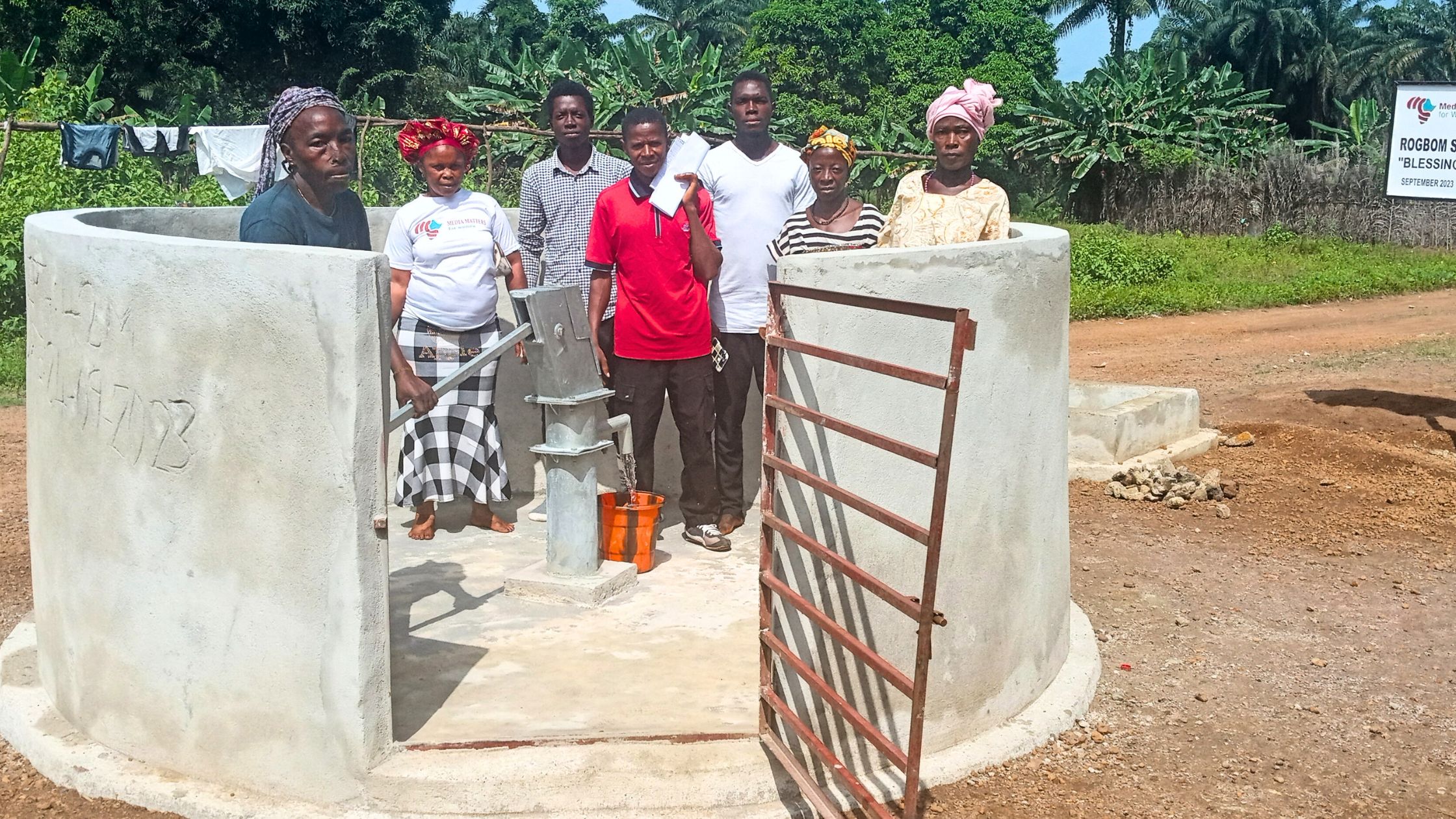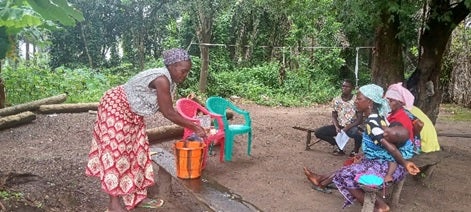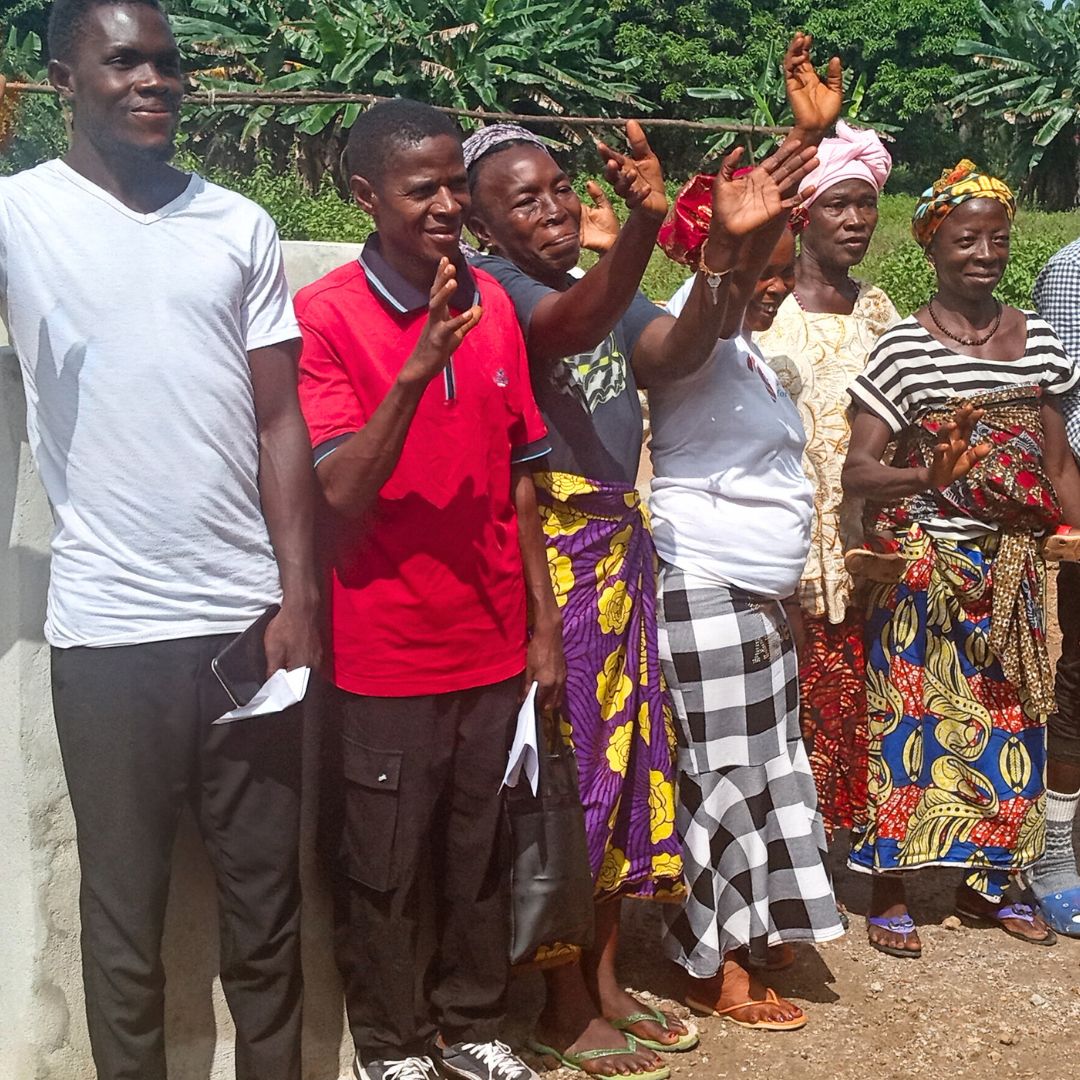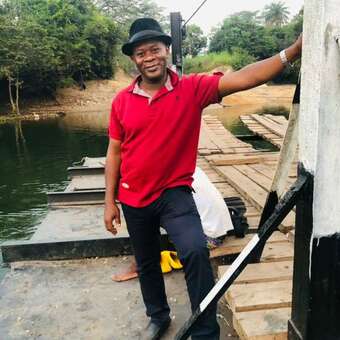
Sanitation, Hygiene Lessons Improve Health in Rogbom, Sierra Leone
World Hope International (WHI)-Sierra Leone and other humanitarian groups, such as Media Matters for Women, gave the Rogbom community clean water plus lessons on safe sanitation and hygiene.
This partnership led to the construction of a borehole water supply system in Rogbom that offers the community safe, clean water. For the first time, vulnerable children and families in Rogbom are empowered; they have access to clean water and the knowledge to protect their long-term health and well-being.
Addressing the Challenge
Before gaining access to clean water and lessons to use it safely, children and families in Rogbom suffered because of unsafe sanitation and hygiene practices. Unsafe water contributed to skin infections and diseases. The problem was that many people in Rogbom didn’t realize their hygiene practices could cause or prevent disease. Training, however, addressed these knowledge gaps and solved several challenges.
1. Personal Hygiene
Personal hygiene, particularly regular bathing, is vital for preventing health problems. The people of Rogbom learned irregular bathing and unclean clothing contribute to skin diseases. Trainers emphasized that maintaining personal cleanliness, although sometimes challenging, is important.

2. Hand-washing
Many diseases are transmitted by dirty hands, according to the World Health Organization (WHO). Trainers taught the people of Rogbom that hand-washing with soap and clean water can reduce infections by up to 98%. Participants learned the importance of hand-washing after using the toilet, cleaning children after defecation, and before eating — especially when handling raw foods such as cassava, carrots and mangoes.
3. Water Hygiene
Training focused on safe water use. The people of Rogbom learned using unclean containers to collect clean water from the borehole can contaminate their water. Trainers also emphasized ways to prevent outbreaks of waterborne diseases, including cholera and typhoid. Tight lids on clean containers, for example, can prevent contamination from animals or insects.
4. Food Hygiene
Training also covered essential food hygiene practices that reduce the risk of foodborne illnesses. Women, who typically prepare meals in Rogbom, learned how to keep food prep areas clean and how to store food safely to prevent contamination.

A Healthier Future for Rogbom
The borehole and accompanying hygiene training changed the lives of people in Rogbom. Today, the community understands how to maintain cleanliness in their personal lives, food preparation and water collection. They know how to prevent dangerous diseases and promote healthier living. Because of their new skills, the people of Rogbom can now imagine having healthier, more sustainable futures.

Daniel Stevens
Sanitation Speciallist in Clean Water & Energy
World Hope International-Sierra Leone
